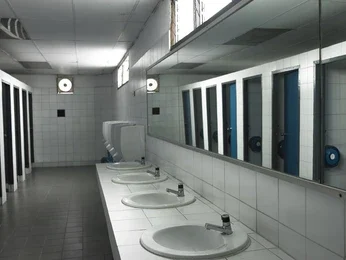
Hastings High School offers regular level classes, honors classes, and AP, or Advanced Placement, classes. The Advanced Placement program was established by the College Board in 1952 to offer university-level courses to high school students. Sometimes, doing well on final exams for AP classes can allow students to earn credits in university. The College Board offers a number of AP classes for students to choose from; students can enroll in classes in the arts, English, history and social sciences, math and computer science, sciences, world languages and cultures, and the College Board’s Capstone Diploma Program. Hastings High School will be offering 13 AP classes for the 2024-2025 school year, but students can choose to take whatever AP exam they wish if they self-study the course. Hastings High School is unique in that it only permits students to take AP classes in junior and senior year, with a few exceptions.
A survey was released for Hastings High School juniors to fill out regarding Advanced Placement classes. When asked how many AP classes they took this year (or how many exams they took, if they self-studied an AP), 11.8% of interviewed students said they took no AP classes, 29.4% of students said they took one AP class, 52.94% of students said they took two AP classes, and the remaining 5.86% of students said they took three APs. The students were also asked how many AP exams they will have taken by the time they graduate. Students who responded that they will have graduated taking zero, three, four, or eight AP exams each made up 12.5% of the responses. 6.25% of the respondents expect to have taken five APs by graduation, 18.75% expect to have taken seven, and 25% expect to have taken six.
Many students claimed that the most important AP class to them was one that related to their intended major. For example, many students stated that AP Biology was the one they cared about the most because they are interested in going into the medical field or would like to pursue biology in the future. One student described how AP United States History and AP Comparative Government and Politics classes were their favorite because they “both relate to my intended major and they helped me realize my passion for the topic.” AP Physics and AP Chemistry were cited as being interesting, challenging classes, which made them favorites among a few AP students. While many students chose to take AP classes because the subjects sounded interesting or challenging, every student replied that they were taking Advanced Placement classes because colleges are looking for them on transcripts. When asked if they take AP classes and exams seriously, most said yes. Some cited the importance of doing well on these exams to spend less money on college tuition, to maintain a high grade point average, or to appeal to colleges. Many students made the point that while they care a lot about their AP classes right now, they likely will not put as much effort into them as seniors, as they expect to have already been admitted to college by the time they take the AP test.
Junior year is notorious for being academically stressful, activity-packed, and an important time to prepare for college. Students begin making college lists, touring potential schools, writing essays, filling out applications, and overall enhancing their resumé as scholars by starting more clubs, becoming more engaged in their communities, becoming important members of their sports teams, and sharpening their grades. As the academic year comes to a close, the stress of college applications is looming ever closer for high school juniors; however, many juniors begin to stress about their college applications at the end of tenth grade as they select courses for the next year. Overall, Advanced Placement classes and exams can be a large part of the experience of junior year of high school. To some, these exams are critical and carry a great deal of weight; for others, AP classes are not so important. While Advanced Placement exams offer a cheaper, more accessible way to learn undergraduate-level material, some students would prefer to fill their schedules with different types of classes for a variety of reasons.


















